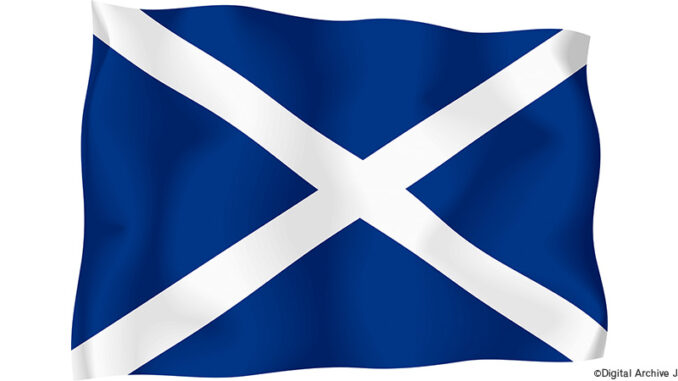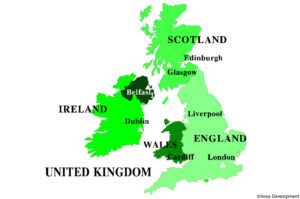

At the height of the British Empire, England had rule over one-quarter of the world’s population. In the years since, some of the countries under their rule either won their independence through war (the United States and India) or through diplomatic negotiations (Canada, Australia, and New Zealand).
Of its remaining fourteen territories, the citizens of Scotland are now considering and voting on the possibility of breaking from its 300-year union with England as part of the United Kingdom and becoming a free and independent nation.
Before we go further with an examination of the issues related to Scottish independence, let’s stop and make sure that everyone understands where Scotland fits in the United Kingdom. And what is Great Britain as a component of the United Kingdom? What about England? Wales? Ireland?
Watch the video below to help it all make a bit more sense. (And keep in mind that the content of this video may be instantly out-of-date, depending on the number of votes cast by the British people on September 18.
While Scotland shares a Prime Minister and Head of State with England, it has its own local government called a parliament. Currently lead by the Scottish National Party, Scotland announced in March that a referendum would take place on September 18, allowing the voters to decide whether they would become an independent state or remain under England rule.
Opponents on both sides feel very strongly about their positions. To get a better sense of what the Scottish people have a stake when they cast their vote, btw takes a closer look.
Key Issues
- Economic Self-sufficiency Does Scotland has the capacity to take care of its citizens.Without the support of its southern neighbor, Scotland will have complete control over revenues from oil and gas sales in their waters, plus tourism and its universities. On the other hand, the latest figures show that Scotland has a bigger budget deficient problem relative to the rest of the UK.
- Currency The Head of the Bank of England has said that if Scotland becomes independent, it will no longer be allowed to continue to use the pound as their currency. Likely options would be to create a separate currency or adopt the euro, the official “legal tender” of eighteen of the countries that make up the Eurozone.
- Controlling Tax Money If independent, the people will decide the fate of and have control social security rates and the allocation of tax revenue. Being more liberal-leaning than England, Scotland would likely choose to fund more social programs.
- Politics Scotland’s break could dramatically alter the existing balance of power between England’s three major political parties – Conservative, Liberal Democrats and Labour. The Queen of England, Elizabeth II, made a statement, asking the people of Scotland to think very carefully about their decision and consider
- Nuclear weapons The government has already made it clear that if it receives the vote that it will make the removal of British nuclear weapons located in Scottish waters a priority. Those opposed say this action could adversely affect England’s defense, essentially “disarming” the country as there is currently no other viable location to move the missiles.
- Membership in the EU and NATO Scotland is currently a part of the European Union and the North American Treaty Organization through its association with England. As an independent state, it would have to re-apply (as there has never been a similar circumstance in the history of the EU) and that could be a long and tedious process. On the other hand, it is possible that Scotland will follow the path of Norway, who operates outside of the EU.
Results!
The polls closed in Scotland at 10 pm on Thursday, September 19, which was 5 pm Eastern Time in the United States. The votes were counted through the night. Early tallies indicated that around 80 percent of the Scottish citizens participated in the vote. According to CNN reports published as soon as reliable data was available, 1,617,989 Scot voted for independence while 2,001,926 voted against leaving the United Kingdom (about 55% against and 45% for).
Going forward, Scotland remains in the U.K., but the government in London made promises to Scotland in their efforts to maintain the status quo. Scotland will be given more control of some areas of their country going forward. And who knows? Another referendum for independence may come up again in the next decade. It has happened twice before in the last half century and, just as with this vote, it failed.
